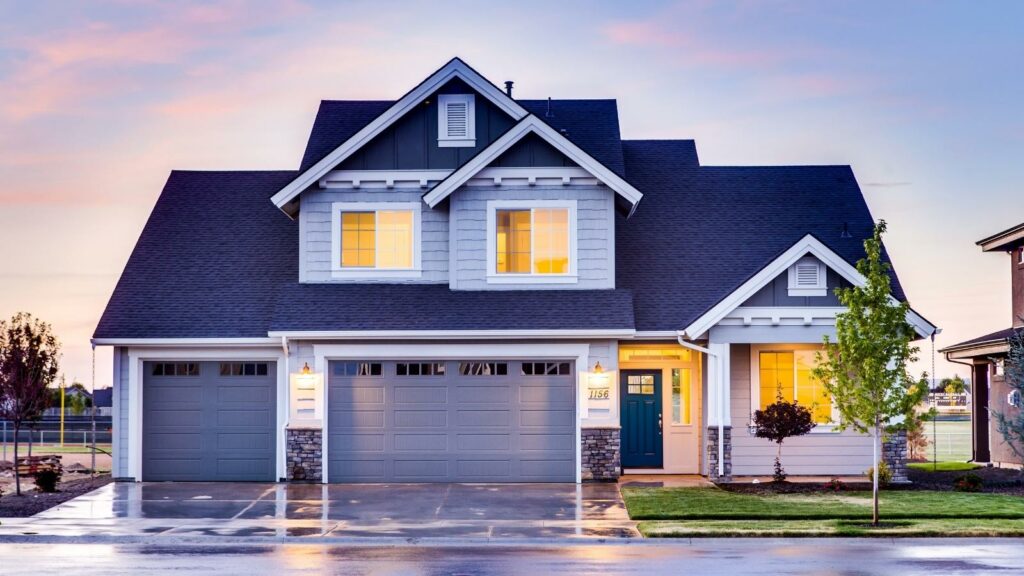Buying a house is a paramount decision that involves a multitude of factors to consider. From the location to the structural integrity, each aspect plays a vital role in ensuring a wise investment. Explore the key elements to look for when buying a house, that will empower you to make an informed decisions that align with your needs and preferences.

Location: The Foundation of a Great Home
When it comes to purchasing real estate, location is paramount. It sets the stage for your daily life and impacts the future value of your property. Consider the following:
Neighborhood: Research the community thoroughly. Evaluate the safety, accessibility, and proximity to essential amenities like schools, grocery stores, healthcare facilities, and recreational areas. A vibrant and well-connected neighborhood can significantly enhance your living experience.
Commute and Transportation: Assess the ease of commuting to work or other frequently visited places. Consider the availability and convenience of public transportation, major highways, and proximity to airports, if applicable. A shorter commute can save you time, reduce stress, and increase overall convenience.
Development Potential: Look for signs of future development in the area. Are there upcoming infrastructure projects or plans for commercial or recreational establishments? Such projects can positively impact property values in the long run, making your investment more lucrative.
Size and Layout: The Practical Considerations
Understanding your space requirements and ensuring the house’s layout aligns with your lifestyle is crucial. Here are the key factors to consider:
Room for Growth: Consider your future plans. Are you planning to expand your family? Will you need a home office or a dedicated space for hobbies? Anticipating future needs will help you select a house that can accommodate potential growth and changing circumstances.
Open Floor Plans: Many homebuyers prefer open floor plans that offer a seamless flow between living spaces. Assess the layout’s versatility and potential for customization to match your personal preferences and furniture arrangement.
Privacy: Evaluate the placement of bedrooms and bathrooms to ensure an optimal level of privacy, especially if you have a multi-generational family or frequent guests. Consider whether the layout facilitates a harmonious coexistence of shared and private spaces.
Structural Integrity: The Solid Foundation
Assessing the structural integrity of a house is crucial to avoid unexpected expenses and ensure your safety. Pay attention to the following details:
Foundation: Look for cracks, unevenness, or signs of water damage in the foundation. These can indicate potential structural issues that may require extensive repairs.
Roof: Inspect the roof for any signs of damage, such as missing or broken shingles, sagging, or leaks. Well-maintained roofing is essential for protecting your investment and preventing water damage.
Plumbing and Electrical Systems: Ensure that the plumbing and electrical systems are in good condition. Check for leaks, water pressure issues, outdated wiring, or faulty outlets. Inquire about the age of these systems to anticipate future maintenance or replacement needs.
Pest Infestations: Look for signs of pest infestations, such as termite damage or rodent droppings. These issues can compromise the house’s structural integrity and pose health risks.
Natural Lighting and Ventilation: The Breath of Fresh Air
Ample natural light and proper ventilation contribute to a comfortable and inviting living environment. Consider these factors:
Windows and Placement: Assess the size, placement, and orientation of windows. Abundant natural light not only creates a pleasant ambiance but also reduces the need for artificial lighting during the day.
Ventilation: Check if the house has adequate ventilation, particularly in areas like kitchens, bathrooms, and laundry rooms. Proper airflow helps maintain a fresh and healthy indoor environment by reducing the accumulation of moisture and odors.
Outdoor Spaces: Consider the availability of outdoor spaces such as balconies, patios, or gardens. These areas provide opportunities for outdoor relaxation and can enhance your overall well-being.
Storage Space: Organized Living
Sufficient storage space is essential for maintaining an organized and clutter-free home. Look for the following elements:
Closets and Cabinets: Assess the number and size of closets and cabinets throughout the house. Sufficient storage in bedrooms, the kitchen, and other living areas ensures you have ample space to store your belongings.
Attic or Basement: If the house has an attic or basement, consider whether they provide additional storage options. These areas can be valuable for storing seasonal items, sports equipment, or other belongings you don’t frequently use.
Garage: If the property includes a garage, evaluate its size and functionality. A garage can serve as a storage space for vehicles, tools, and other bulky items.
Aesthetics and Personal Preferences: Your Style, Your Home
While practical considerations are essential, remember to evaluate the house based on your preferences and aesthetic appeal. Consider the following:
Interior Design: Assess the overall interior design, including finishes, materials, and architectural details. Ensure that the style and ambiance of the house align with your taste and vision for your ideal home.
Outdoor Appeal: Examine the house’s exterior, including the landscaping, curb appeal, and architectural style. A well-maintained exterior can enhance the overall attractiveness of the property and contribute to a pleasant living environment.
Potential for Customization: Consider the possibility of customization and personalization. Determine if the house allows for modifications or renovations to align with your specific preferences and needs.
Financial Considerations: A Solid Investment
Lastly, evaluate the financial aspects of buying a house to ensure it aligns with your budget and long-term goals. Consider this:
Market Value: Research the market value of similar properties in the area to assess if the asking price is reasonable. Consult with a real estate professional or an appraiser to better understand the property’s value.
Additional Expenses: Factor in additional costs such as property taxes, homeowner’s association fees, insurance premiums, and maintenance expenses. These ongoing expenses can impact your overall budget and should be considered in your decision-making process.
Financing Options: Explore different financing options and consult with a mortgage specialist to determine the most suitable loan terms and interest rates for your situation. Understand the financial obligations and responsibilities that come with homeownership.
Conclusion
Buying a house is an intricate process that requires careful consideration of various factors. By examining the location, size, layout, structural integrity, natural lighting, ventilation, storage space, personal preferences, and financial aspects, you’ll be equipped to make an informed decision. Remember, a house is not just a structure; it’s a place where memories are made and dreams are realized. Take the time to evaluate these key elements, and you’ll be one step closer to finding your perfect home.
